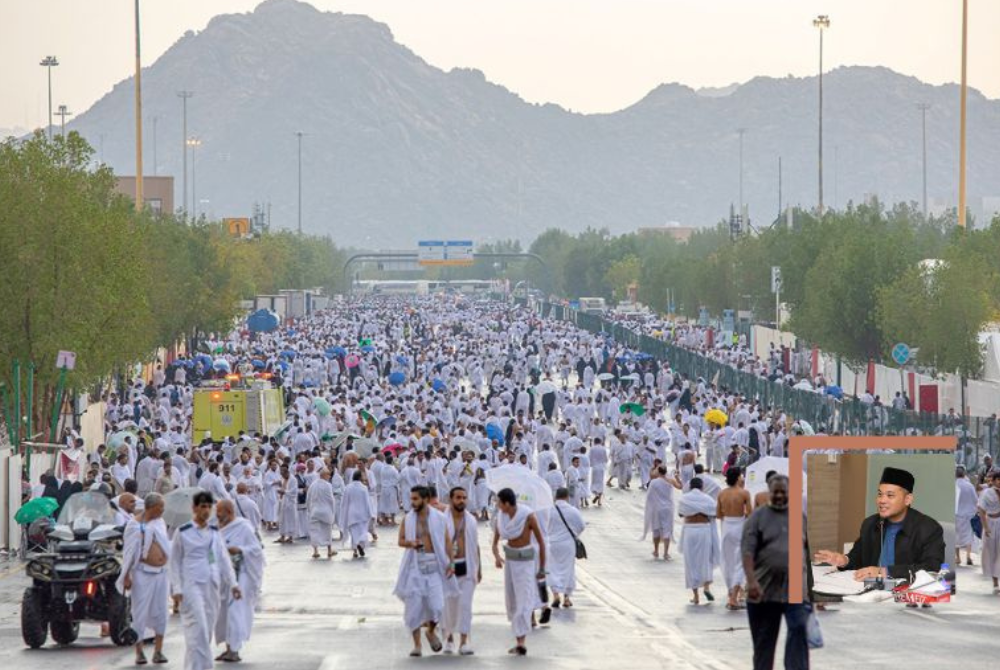What next-of-kins need to know if family member goes missing in the Holy Land
NURULFATIHA MUAH
It is now the time for Haj –where worshippers perform the fifth pillar of Islam – which is considered the peak of submission to Allah because it contains various elements of sacrifice that need to be perfected throughout the Manasik (ritual).
The Holy Land being far away from home was proof of the pilgrims’ sacrifice, prepared to leave their family members and their homeland behind, and it would be devastating if the loved ones ended up being missing or breathed their last at the Holy Land.
Losing pilgrims was not a new occurrence.
The tragedy of al-Muassim Tunnel served as a reminder of the tragic event that occurred during the Haj season on July 2, 1990.
The pedestrian tunnel connecting Makkah and Mina had collapsed, killing 1,426 pilgrims in the tragedy.
Status of next-of-kins who went missing
The disappearance of an individual, also known as al-mafqud, had been a topic widely discussed by fiqh scholars since before. Discussion on al-mafqud focused on the missing person’s circumstances.
The solution was the same, which was the fuqaha (experts in Islamic law) trying to determine a rule that guaranteed benefit to the parties involved, especially the ‘missing heir’ and the next of kin who were eligible and entitled to inheritance.
The term al-mafqud referred to a person who went missing from their home or country with no news of them being alive or having died and their whereabouts were unknown.
After a certain period of time since the incident, the individual could be considered as having gone missing.
Determining presumption of death
Fiqh scholars agreed that the inheritance of a missing person cannot be distributed among the next of kin immediately after they went missing, despite the high possibility of being alive or the higher probability of being dead.
However, scholars had disagreements in determining the waiting period. Court discretion based on the majority of fuqaha were required to determine the waiting period for the missing person to be declared dead or not.
For example, setting four years to issue a declaration of presumption of death as stated in Section 53 of the Islamic Family Law (Federal Territory) Act 1984.
Inheritance of the missing next-of-kins
There were two main situations for a missing person who is a recipient of inheritance from a family member who had died before the missing person’s death was confirmed.
The first situation was when the missing person is the sole heir to the deceased or is the guardian (hajib) to other heirs. In this situation, all distribution of the deceased’s inheritance will be postponed until the missing person case was completed.
For example, in a situation where the deceased had left behind a son, who was still missing, and a biological male relative.
Because the son is the rightful heir, the deceased (his father) property will be frozen until the son’s presumption of death was obtained. After the son was declared dead then the inheritance can be distributed to the deceased’s biological male relative.
Meanwhile, the second situation was when there are other heirs who also have a share of the inheritance besides the missing person.
In this situation, the scholars had different opinions but the majority of them believed that the next of kin besides the missing person should be given the ensured share which is the lowest amount of share between the two situations.
Going missing while performing Haj is considered as mafqud death
The 27th Fatwa Committee of the National Council for Islamic Religious Affairs Malaysia which took place on Oct 3, 1990, had discussed the issue of missing pilgrims in the tragedy of al-Muassim Tunnel in which the committee ruled that the 19 missing Malaysian pilgrims were considered as mafqud death.
The evidence or baiyinah to declare death is:
- Have exhausted the means to search for the missing person.
- There is no evidence or suspicion that they are still alive and hiding anywhere in Saudi Arabia or other countries.
- The missing person is not among those looking for the opportunity to flee from the country.
***Article written by Universiti Sains Islam Malaysia Faculty of Shariah and Law senior lecturer Zahari Mahad Musa.














